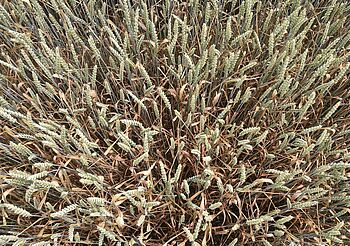JKI Project team
Institute for Strategies and
Technology Assessment (SF)
- Dr. Til Feike
(Contact person at JKI)
Tel: +49 (0)3946 47 5260
til.feike@julius-kuehn.de
The project "KlimaN" is funded by the Federal Ministry of Food and Agriculture as part of the German Climate Protection Programme 2022.
KlimaN is a collaboration project with the Johann Heinrich von Thünen Institute.
Background:
Reducing the level of nitrogen (N) fertilization and especially N surpluses offers substantial reduction potentials for greenhouse gas (GHG) emissions in agriculture. In addition to emissions for fertilizer production, N2O emissions generated on agricultural land, especially from unused N fertilizer, contribute to the climate impact of crop production. Optimal fertilization, which corresponds to the actual nutrient requirements of the plants, is essential both in terms of climate protection and water pollution control. However, the increase in unfavorable weather conditions is making this needs-based fertilization increasingly difficult. In the course of climate variability, yield variability may also increase, which may increase the risk of unused N.
Objectives:
To assess the climatic effects on N efficiency and to develop appropriate adaptation measures for climate-efficient cropping systems, we are investigating the genotype x management x environment interrelationships in climate change. Here, we analyze long-term data sets using statistical methods and evaluate the development in N fertilization intensity as well as breeding progress regarding N use efficiency over the past decades. Furthermore, we use process-based agroecosystem models to evaluate the effects of different fertilization strategies and variety selection on N-use efficiency and GHG balances across Germany. The process-based models allow us to simulate the entire soil-plant-atmosphere system in daily time steps, taking into account the interplay of crop N availability and demand. For the analyses, we use the daily weather data of the climate scenarios of the DWD core ensemble, which cover the entire range of future climatic development in Germany until the end of the century. The synthesis of our results with the complementary work of the Climate-N project partners at the Thünen Institute allows new insights into optimal fertilization strategies and nitrogen use efficiency under climate change, which are also highly relevant for policy and practice.

